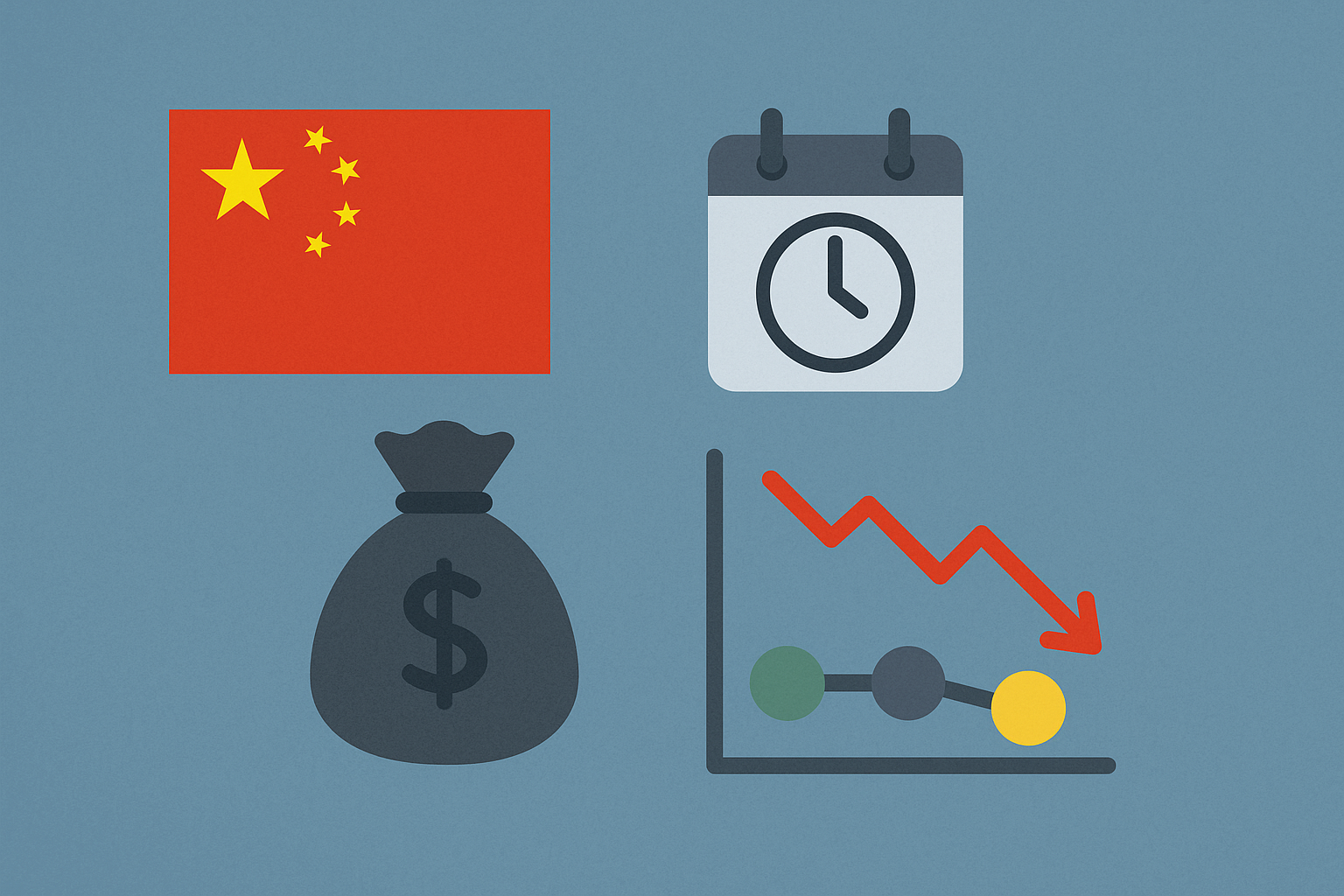Introduction
The United Nations has long relied on timely financial contributions from its member states to maintain stability in its operations. Among these members, China has become one of the largest contributors, reflecting its expanding global economic influence. Yet in recent years, China’s delayed payments have drawn attention and concern, particularly because the gap between the expected payment dates and actual transfers has been widening. What once was a delay of a couple of months has now stretched close to a year. For 2024, China’s assessed contribution of nearly 480 million US dollars was reportedly overdue by almost ten months. This shift is not merely a bureaucratic hiccup; it has become a significant problem for the UN system, limiting its ability to plan and execute critical programs worldwide.
Historical Context Of UN Funding And China’s Role
The UN budget is sustained by mandatory contributions from its 193 member states, calculated based on each country’s gross national income and other factors. Traditionally, the United States, Japan, China, Germany, and several European nations have been among the top contributors. Over the last two decades, China’s assessed share has grown dramatically, reflecting its rise as the world’s second-largest economy.
China’s position as a permanent member of the Security Council further amplifies its responsibilities, both financial and political. With the United States occasionally delaying or withholding payments due to political disputes, China’s role as a consistent payer was once seen as stabilizing. However, the recent pattern of chronic delays indicates a shift that could undermine the UN’s financial sustainability.
The Scale Of The Delay
In 2021, China’s contribution arrived about two months late, which at the time was manageable for the UN’s cash flow. But by 2024, the payment lag had expanded to nearly ten months, creating a massive shortfall in operational budgets. This delay means the UN has had to operate without access to nearly half a billion dollars it was counting on.
This funding gap has wide repercussions. Unlike optional or voluntary contributions, assessed dues are foundational to the UN’s core functions. Salaries for staff, peacekeeping operations, humanitarian logistics, and ongoing development projects are all tied to the regular budget. When a top contributor such as China delays payment, the financial strain ripples across the system.
Why Do The Delays Matter?
The UN is not a profit-making entity; it cannot borrow heavily or print money. Its budget depends on predictable inflows from members. Any disruption to this flow forces the organization to take emergency measures such as postponing projects, freezing recruitment, and suspending travel or field activities.
China’s growing delays, therefore, are not just an accounting inconvenience. They create uncertainty, erode confidence in multilateral governance, and jeopardize vital humanitarian responses. For instance, agencies like the World Food Programme or UNICEF rely on timely UN funding to continue life-saving operations. A shortage in the general budget can indirectly affect how much flexibility these agencies have in responding to crises such as famine, conflict, or natural disasters.
Possible Reasons Behind China’s Delayed Payments
Analysts have offered several explanations for why China has increasingly delayed its contributions.
1. Domestic Economic Pressures
China’s economy has been facing multiple headwinds, including a slowing property market, rising debt levels, and weaker export growth. At a time when Beijing is trying to prioritize domestic economic stability, even relatively small adjustments in foreign payments can be politically attractive.
2. Geopolitical Strategy
Some experts argue that delays may reflect Beijing’s attempt to signal dissatisfaction with aspects of UN decision-making or to increase its leverage within the institution. By holding back payments, China can indirectly remind other nations of its indispensable role.
3. Administrative and Bureaucratic Causes
It is also possible that bureaucratic processes within China’s financial system are slowing transfers. Changes in fiscal cycles or administrative bottlenecks may have lengthened the delay. However, the scale and consistency of the lag suggest that political choices may be at play, not just administrative inefficiencies.
Impact On UN Operations
The consequences of delayed payments are visible across multiple areas.
Humanitarian Assistance
The UN’s ability to pre-position food, medicine, and emergency shelter depends on consistent cash flow. Funding shortages mean delays in deploying aid workers, reduced stockpiles, and in some cases, suspension of programs.
Peacekeeping Missions
Peacekeeping requires steady logistical support, including salaries, transport, and equipment. Payment delays can force missions to operate on credit or reduce their presence in conflict zones. This creates vulnerabilities where fragile peace agreements rely on UN monitoring.
Development Projects
From climate change mitigation to education and health programs, long-term UN development work is jeopardized when budgets become uncertain. Delays undermine project planning, recruitment of experts, and implementation schedules.
Staff and Institutional Morale
When the UN repeatedly faces liquidity crises, staff morale suffers. Contracts may be shortened, recruitment frozen, and existing employees forced to handle heavier workloads. This not only hampers performance but also discourages talented professionals from pursuing careers within the UN.
Broader Global Consequences
The issue is not merely financial—it also affects global governance.
Undermining Trust in Multilateralism
The UN was designed to represent collective responsibility. When a leading power like China fails to pay on time, it erodes trust in the principle of burden-sharing. Other nations may question why they should shoulder their responsibilities if larger economies falter.
Geopolitical Rivalries
Delayed payments add another layer of tension between China and other major contributors, especially the United States and European Union. These countries already accuse China of attempting to reshape international institutions to suit its interests. Payment delays may be interpreted as part of a broader geopolitical contest.
Weakening UN Reform Agendas
The UN has been under pressure to reform its operations to be more transparent and efficient. However, funding instability makes reform harder. Without reliable income, even well-designed reforms cannot be implemented effectively.
Comparisons With Other Countries
While China’s delays are notable, it is not the only nation with a history of late or withheld payments.
United States: Washington has at times withheld contributions to push for reforms or express dissatisfaction with UN policies, particularly concerning Israel or peacekeeping.
Other Major Economies: Some middle-income countries also struggle with timely payments due to domestic fiscal constraints.
Yet the difference is scale and timing. China’s share of UN contributions has grown to nearly 15 percent of the total budget, making its payment delays far more disruptive than those of smaller states.
Possible Solutions And Path Forward
To address this funding crisis, the UN and its members may consider several strategies.
Encouraging Early Payments
Diplomatic pressure could be applied to encourage China and other members to pay on time. Public transparency about payment records may also generate accountability.
Creating Reserve Funds
The UN could explore creating a larger contingency fund to cushion the impact of late payments. While such funds already exist, they are often insufficient for gaps of this magnitude.
Diversifying Funding Sources
Relying heavily on assessed contributions from a few major economies leaves the UN vulnerable. Expanding partnerships with private foundations, corporations, and philanthropists could add flexibility.
Governance Reforms
Stronger budgetary discipline, cost-cutting measures, and reforms to streamline bureaucracy may also reassure member states and encourage more timely payments.
The Way Ahead For Multilateral Cooperation
The issue of delayed contributions by China underscores a deeper challenge facing the international system: how to maintain multilateral cooperation in an era of shifting power dynamics and rising geopolitical competition. For the UN, ensuring financial stability is not just about balancing accounts—it is about preserving its role as a central institution in global governance.
If the trend of delayed payments continues, the UN risks becoming paralyzed during times when the world most needs coordinated action. Climate change, pandemics, armed conflicts, and humanitarian crises require strong multilateral responses. Funding instability undermines this capacity, ultimately hurting vulnerable populations around the globe.
Conclusion
China’s delayed payments to the UN represent more than a bureaucratic delay. They highlight the fragility of the world’s premier multilateral institution at a time when global challenges demand stronger cooperation. The nearly ten-month delay in 2024, involving almost half a billion dollars, has constrained the UN’s ability to carry out its work effectively.
Whether motivated by domestic pressures, strategic calculation, or bureaucratic hurdles, these delays create ripple effects across humanitarian, peacekeeping, and development operations. They also cast doubt on the future of multilateralism itself.


